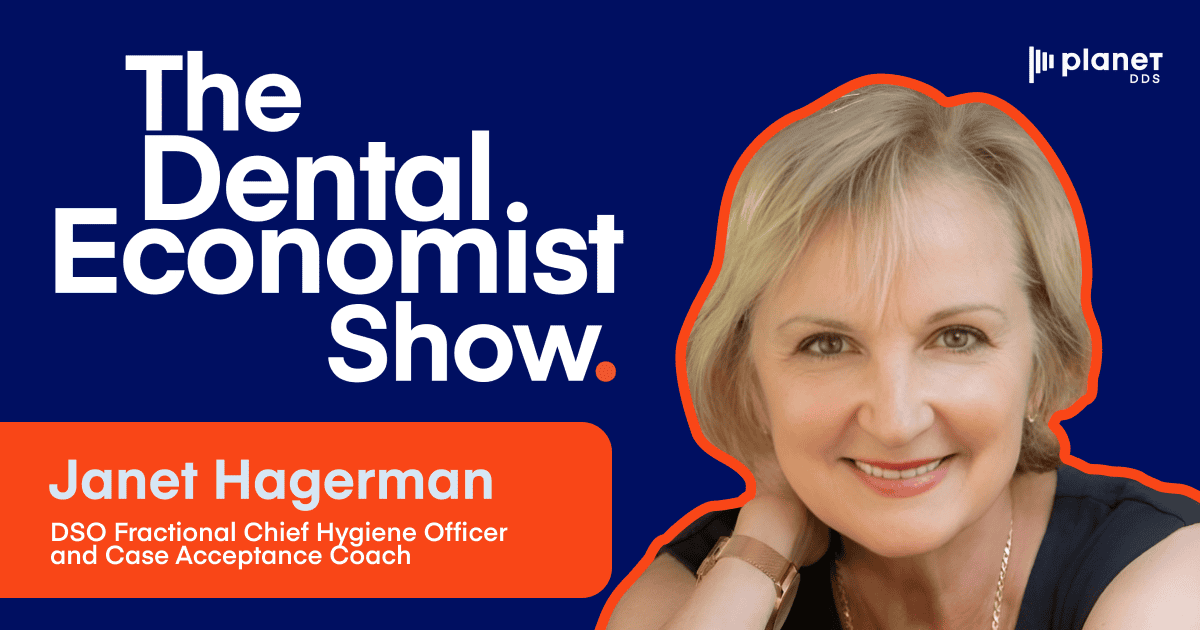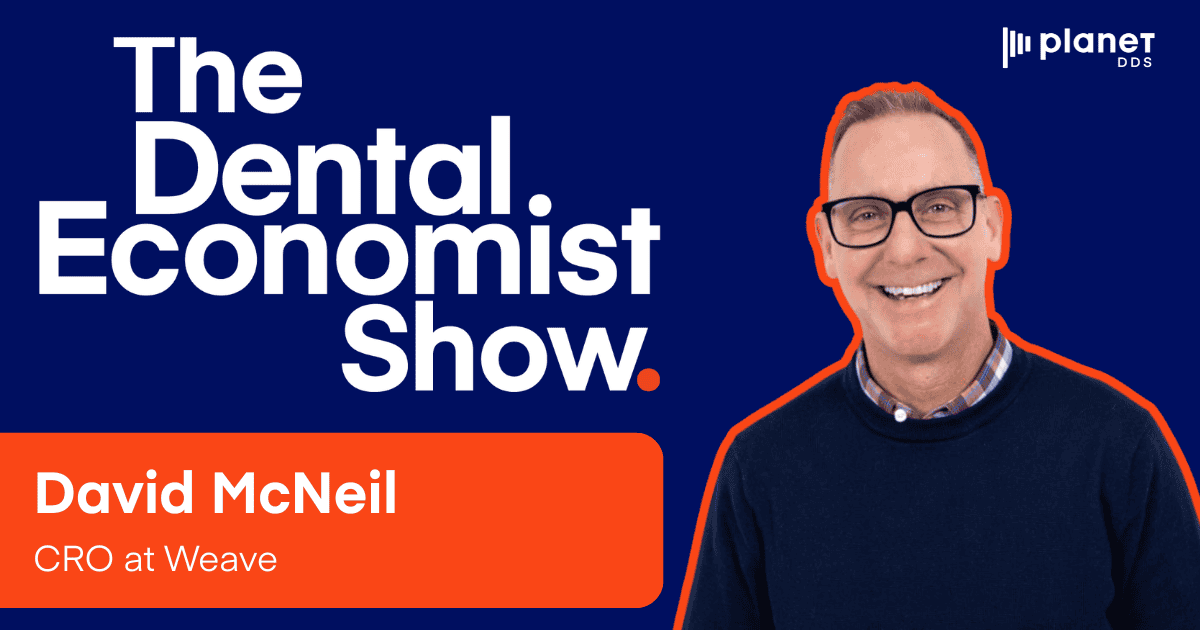Janet Hagerman on Transforming Dental Hygiene into a Must-Have in the Industry

Every dental practice is only as good as the number of people who know it is. In the latest episode of The Dental Economist Show, host CRO Mike Huffaker of Planet DDS sits down with Janet Hagerman, a leading voice in dental sales, DSO fractional chief hygiene officer (CHO) and case acceptance coach, to explore the evolution of dental hygiene leadership and the art of ethical case presentation.
What you’ll learn:
- How to increase case acceptance rates through value-based conversations
- Why implementing assisted dental hygiene models can dramatically improve practice efficiency and patient care
- The “values-first framework” for presenting treatment plans based on individual patient priorities
- How to build standardized clinical protocols across multiple locations while maintaining quality care
- Why monthly hygiene-doctor meetings are crucial for creating clinical alignment and improving patient outcomes
- How to use KPIs as teaching tools rather than just performance metrics
- The importance of reinforcement learning in implementing new protocols and systems across dental organizations
- How to structure hygiene leadership roles based on practice size and growth objectives
This conversation is a masterclass in dental sales ethics, patient acceptance strategies and the future of dental hygiene departments.
Episode Highlights
In the latest episode host Mike Huffaker welcomes Janet Hagerman for a deep dive into what she calls the “patient value framework,” a unique approach to case acceptance that puts the patient at the center. Here are some highlights from the show:
The assisted dental hygiene model
Hagerman advocates for implementing assisted hygiene programs where dedicated assistants support hygienists with room turnover and instrumentation. This model allows hygienists to focus solely on patient care while increasing productivity and reducing physical strain.
And, while some hygienists initially resist sharing patient relationships, proper training and introduction of assistants to patients helps overcome these concerns. When implemented correctly with staggered scheduling and clear role definition, assisted hygiene creates a more efficient and sustainable care delivery system.
The value-based case acceptance framework
Hagerman reveals that selling dentistry ethically means focusing on clinically documented needs rather than unnecessary treatments. The industry’s current case acceptance rate of 30 to 50% indicates that half of diagnosed patients aren’t receiving needed treatment, creating a significant opportunity for improvement. Treatment presentations should be tailored to each patient’s core values, typically centered around time, money, or pain concerns.
A personalized approach such as this transforms “selling” into value-aligned care recommendations that resonate with patients’ priorities and concerns, resulting in higher case acceptance rates and better health outcomes, as patients better understand how treatment aligns with what matters most to them.
Building clinical consistency across multiple locations
Hagerman emphasizes that growing dental organizations need clear clinical leadership and standardized protocols rather than complete provider autonomy. Monthly hygiene-doctor meetings where teams review cases together help create philosophical alignment and consistent care standards.
Organizations should implement new clinical protocols through a structured process: beta testing, documented procedures, and ongoing reinforcement. For groups with 20 to 25 practices, having dedicated supervisors who can visit locations regularly helps maintain standards, ensuring quality care while allowing appropriate clinical judgment.
Using KPIs as teaching tools
Hagerman reframes performance metrics from pure numbers into powerful coaching opportunities that drive improvement. When significant variances appear between providers’ metrics, it opens the door for collaborative exploration rather than criticism. Through private conversations and open-ended questions, leaders can help team members self-discover areas for growth.
The goal is helping providers recognize opportunities independently rather than forcing change through mandates, which in turn transform KPIs from threatening quotas into valuable insights that enhance patient care and practice success.
The Dental Economist Show
Don’t miss insightful conversations with industry experts on the latest trends and top strategies to grow your DSO or dental group. Tune in to The Dental Economist Show each week as we meet at the intersection of profit and purpose.
Listen to the full episode!



